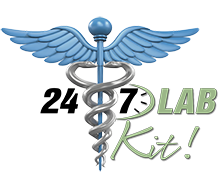I’m Dating Someone with Genital Herpes. Now What?

What happens when you discover the special someone you’ve been dating has genital herpes? To start, it’s natural to have questions, concerns, and even fears about this sexually transmitted infection (STI). That said, it’s important to remember that herpes, while incurable, is manageable and doesn’t have to be a relationship dealbreaker.
In this guide, we’ll walk you through what genital herpes is and provide you with perspective on navigating a relationship with a positive partner.
Tip 1: Understand Genital Herpes

Before diving into the intricacies of dating someone with genital herpes, it’s essential to understand the condition clearly. Genital herpes is a common STI caused by two viruses: herpes simplex virus type 1 (HSV-1) and herpes simplex virus type 2 (HSV-2). HSV-2 is the most common cause of genital herpes, while HSV-1 typically causes oral herpes (cold sores). These viruses are highly contagious and can be transmitted through intimate contact.
The most common way genital herpes is transmitted is through sexual contact. This includes vaginal, anal, or oral sex with someone who has an active outbreak or is shedding the virus, even if they don’t have visible sores. The virus can also be transmitted through skin-to-skin contact in the genital area, even without visible sores. Simply rubbing or touching the genital area of an infected person can potentially spread the virus. HSV-1, usually associated with oral herpes (cold sores), can be transmitted to the genitals through oral genital contact. So, if someone with a cold sore goes down on their partner, it’s possible to transmit the virus to the genital area.
One tricky aspect of herpes is that it can be contagious despite no visible symptoms. Some people with herpes may have occasional outbreaks, but others may carry the virus without experiencing noticeable sores. During these asymptomatic periods, the virus can still be transmitted. While less common, it’s also possible to contract herpes through sharing personal items like towels, razors, or sex toys if they come into contact with the virus and then touch a mucous membrane or an open cut on your skin.
Herpes presents as painful sores or blisters in the genital or anal area, although not everyone with herpes experiences noticeable symptoms. These outbreaks can be recurrent and are often accompanied by flu-like symptoms such as fever and swollen lymph nodes.
Knowledge is power, and understanding the virus can help demystify it and reduce any irrational fears or misconceptions you may have. It’s also important to understand that herpes is not as easily transmitted as you might think. The risk of transmission can be significantly reduced through safe sex practices and antiviral medications your partner may be taking.
Tip 2: Have Open and Honest Communication

Understanding genital herpes (and your partner’s diagnosis) is the first step to determining where your relationship can go. After all, the cornerstone of any healthy relationship is communication, which becomes even more critical when dealing with a sensitive issue like genital herpes.
If your partner has disclosed their herpes status to you, it’s a testament to their trust in you and commitment to transparency. With a foundation rooted in honesty and vulnerability, you can approach the conversation openly, knowing they have your best interest at heart.
Remember –– dealing with a herpes diagnosis or revelation can be emotionally challenging for both parties. You’re not alone in your discomfort, as your partner may experience feelings of guilt, shame, or fear of rejection. Don’t be afraid to ask questions and seek clarification if there’s anything you need help understanding.
Opening up the lines of communication isn’t just about getting information, but establishing mutual support if the relationship is worth investing in. Remember, herpes doesn’t define your partner; it’s just a part of their life. And you can continuously tap into professional support from a therapist or counselor to help you process feelings.
Tip 3: Seek Medical Advice

While it’s good to educate yourself about genital herpes, it’s equally essential for both you and your partner to consult with a healthcare professional. A medical provider can guide you in managing the condition, discuss treatment options, and address any concerns you may have about transmission.
Though there is no cure for genital herpes, there are effective antiviral medications that can help manage the condition. Your partner may be on medication to reduce the frequency and severity of outbreaks, which can also decrease the risk of transmission to a partner. Getting tested to know your STI status is also a good idea. This will not only help protect your partner but also ensure your sexual health.
To skip the long lines and awkward in-person conversations, consider testing at home with the 247LabKit HSV Kit: Herpes At-Home Test. With the swipe of a swap, this service will help you discreetly and easily monitor your sexual health. You can expect to receive your test results within one-to-two days via 247Labkit’s HIPAA-compliant email service.
Tip 4: Safe Sex Practices

Practicing safe sex is essential when one partner has genital herpes. Condoms and dental dams can significantly reduce the risk of transmission, but it’s important to remember that they are not foolproof. Herpes can be transmitted through skin-to-skin contact, so using these protective measures consistently and correctly is crucial. On that note, abstaining from sexual activity when you or your partner has an outbreak or symptoms of herpes is the most effective way to prevent transmission.
It’s important to remember that while these practices can reduce the risk of transmission, there is still a possibility of transmission, especially during asymptomatic shedding. Therefore, communication and understanding between sexual partners are essential in managing herpes in a relationship. Consulting with a healthcare provider for personalized guidance and treatment options is also recommended.
While safe sex is essential, don’t let herpes overshadow the intimacy in your relationship. With the proper precautions, you can have a fulfilling and loving sexual relationship.
Knowledge is Power
Dating someone with genital herpes may seem daunting initially, but proper knowledge, communication, and support can lead to a fulfilling and loving relationship. If you’re invested in your partner, this hurdle could be an opportunity to build a stronger, more resilient relationship. After all, navigating this period requires trust, understanding, and effective communication.
Before anything else, it’s vital to first understand what genital herpes is, how it affects your partner, and how to safeguard your health. During this process, you and your partner may experience emotional challenges related to this revelation, so discussing your feelings and seeking clarification is crucial. As is consulting with a healthcare provider, who can guide managing herpes and lowering the risk of transmission.
Ultimately, having genital herpes doesn’t mean the end of intimacy in your relationship. With knowledge, communication, medical advice, and safe sex practices, you can maintain a loving and fulfilling sexual relationship. Herpes is manageable, and it doesn’t have to be a relationship dealbreaker. The key is to approach the situation with empathy, understanding, and a commitment to each other’s well-being.







Comments are closed